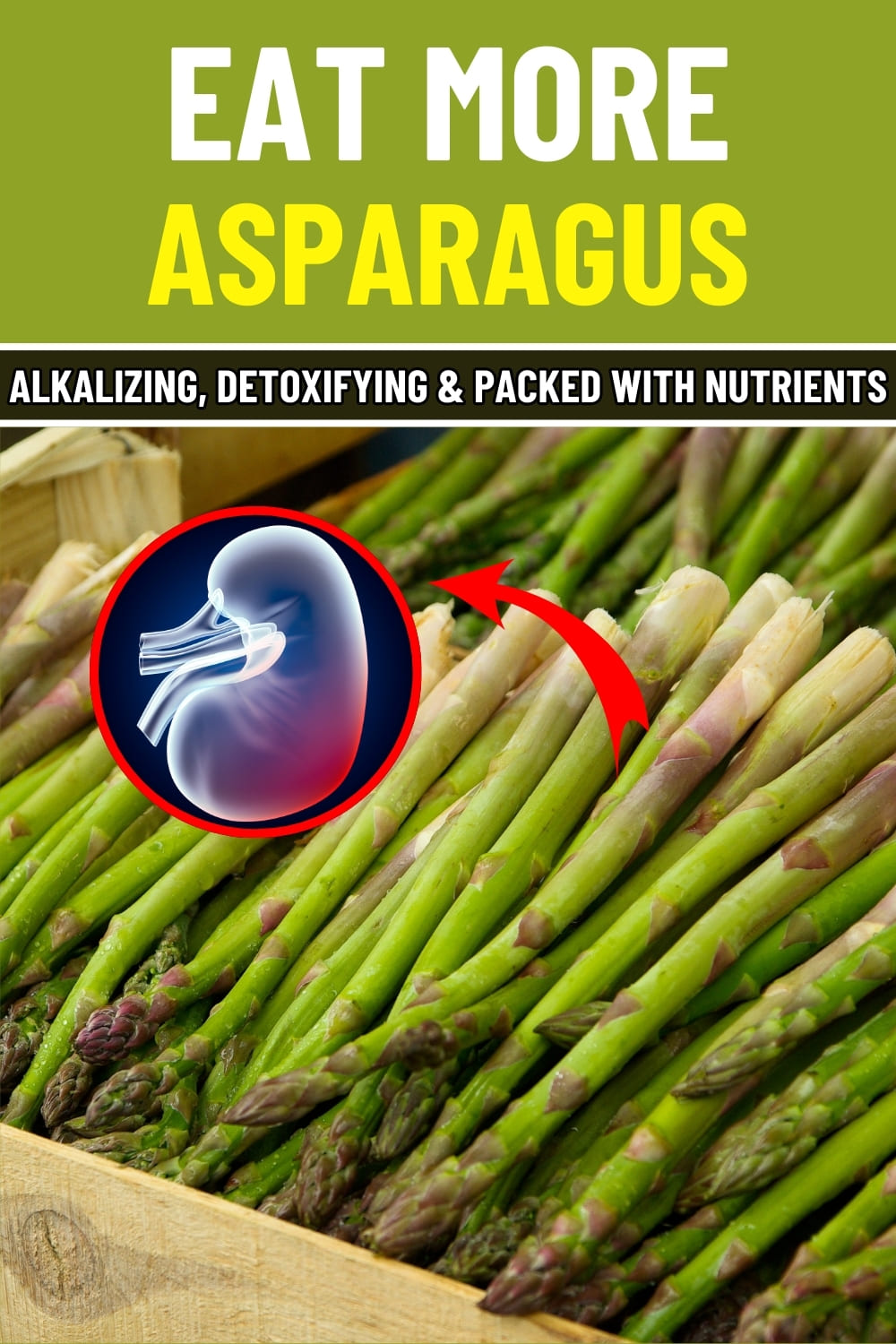If you think asparagus is just another green vegetable, think again! This vibrant, spear-shaped veggie is a powerhouse of health benefits. If you want to feel lighter, improve digestion, and boost your health, asparagus might just be your new best friend.
Beyond its fresh, slightly bitter taste, this superfood is packed with vitamins, antioxidants, and fiber. But what really makes it stand out? Its ability to cleanse your kidneys, reduce bloating, and protect vital organs from toxins.
Let’s dive into the science-backed benefits of asparagus and why you should add more of it to your plate!
#1. Supports Kidney Health and Acts as a Natural Diuretic
Asparagus is well-known for its natural diuretic properties, helping the body flush out excess fluids and toxins. This is due to asparagine, an amino acid that stimulates kidney function and increases urine production.
According to a study published in the Journal of Ethnopharmacology, consuming asparagus regularly can help prevent kidney stones, reduce water retention, and support overall urinary tract health.
If you struggle with bloating or fluid buildup, adding asparagus to your diet can be a simple and natural solution.

#2. Protects Liver Health and Aids Detoxification
Your liver works hard to remove toxins from your body, and asparagus can be an excellent ally in this process. Rich in antioxidants like glutathione, asparagus helps neutralize harmful free radicals and supports liver function.
Studies, including research published in the Journal of Food Science, have shown that asparagus extract can reduce oxidative stress in liver cells, potentially protecting against liver damage caused by alcohol or toxins.
By incorporating asparagus into your diet, you’re giving your liver the nutrients it needs to function optimally.
#3. Promotes Digestive Health and Reduces Bloating
Asparagus is a fantastic source of prebiotic fiber, which nourishes beneficial gut bacteria and promotes healthy digestion.
The inulin found in asparagus improves gut health by feeding probiotics, aiding in nutrient absorption, and reducing digestive discomfort.
Plus, its high water content and mild laxative effects can help relieve constipation and keep your digestive system running smoothly.

#4. Enhances Heart Health and Lowers Blood Pressure
Packed with potassium and folate, asparagus supports cardiovascular health by regulating blood pressure and reducing inflammation. Potassium helps relax blood vessels, improves circulation, and lowers hypertension risk.
Meanwhile, folate is essential for reducing homocysteine levels, a compound linked to heart disease. Studies indicate that incorporating potassium-rich foods like asparagus into your diet can contribute to better heart health over time.
#5. Strengthens the Immune System
If you want to keep colds and infections at bay, asparagus should be on your grocery list. This veggie is rich in vitamin C, vitamin E, and powerful antioxidants that help boost immunity and fight off harmful pathogens.
Regular consumption can strengthen your body’s defense mechanisms, keeping you healthier and more resilient against seasonal illnesses.

#6. Supports Weight Loss and Metabolism
Asparagus is a low-calorie, nutrient-dense food that can aid in weight management. High in fiber and water, it keeps you full for longer, reducing cravings and unnecessary snacking.
Plus, its natural diuretic properties help flush out excess water weight, giving you a leaner, more energized feeling.
#7. Improves Skin Health and Slows Aging
Thanks to its high antioxidant content, asparagus helps fight signs of aging and promotes radiant skin.
Vitamin A and vitamin C work together to boost collagen production, reduce wrinkles, and protect against skin damage from UV rays and pollution. Eating asparagus regularly can contribute to a clearer, more youthful complexion.

How to Use Asparagus for Maximum Health Benefits
Incorporating asparagus into your diet is simple and delicious. Here are some easy ways to enjoy it:
-
Steamed or Roasted: Lightly steam or roast asparagus with olive oil, garlic, and lemon for a nutritious side dish.
-
Smoothies: Blend a small amount of steamed asparagus into a green smoothie for a hidden nutrient boost.
-
Soups and Salads: Add chopped asparagus to soups, stir-fries, or fresh salads for extra fiber and flavor.
-
Grilled: Grill asparagus with a drizzle of balsamic glaze for a tasty, nutrient-packed snack.
-
Asparagus Tea: Boil asparagus spears in water, strain, and drink the liquid for a gentle kidney cleanse.

Cautions and Precautions
People with kidney disease should consult a doctor before increasing asparagus intake, as its diuretic properties may affect fluid balance.
Some individuals may experience digestive discomfort or gas due to the high fiber content.
If you are on blood thinners, be mindful of asparagus’ vitamin K content, which plays a role in blood clotting.
Disclaimer
This article is for informational purposes only and is not a substitute for professional medical advice. Always consult a healthcare provider before making dietary changes, especially if you have underlying health conditions.

Asparagus: The Secret Superfood That Cleanses Your Kidneys and Boosts Your Liver Health
